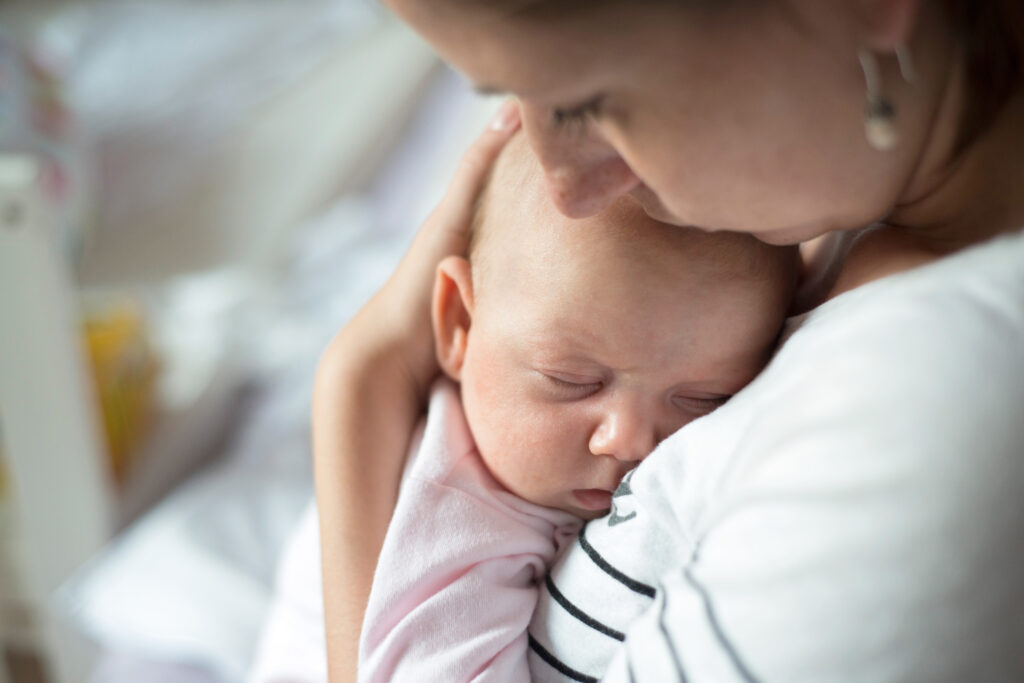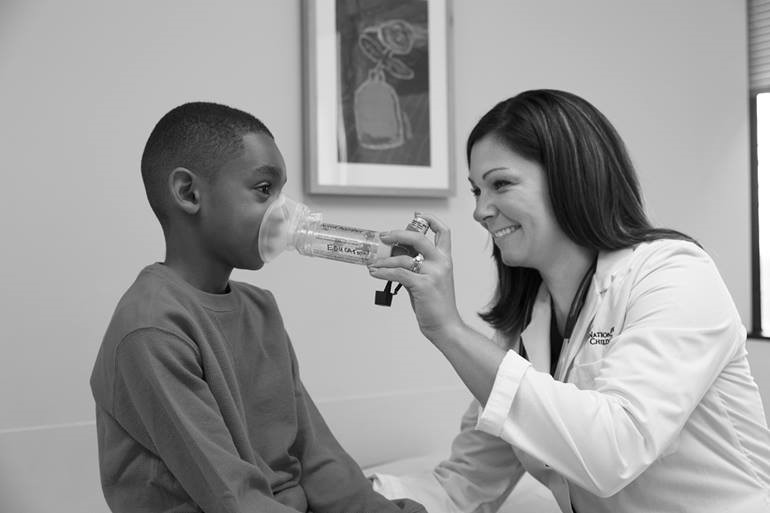Social Needs Associated with Postpartum Depression
Social Needs Associated with Postpartum Depression https://pediatricsnationwide.org/wp-content/uploads/2021/03/AdobeStock_109625528-1024x683.jpg 1024 683 Mary Bates, PhD Mary Bates, PhD https://secure.gravatar.com/avatar/c6233ca2b7754ab7c4c820e14eb518c8?s=96&d=mm&r=g- May 01, 2023
- Mary Bates, PhD

Screening for social needs at pediatric well-checks may help identify vulnerable mothers.
In a new study, researchers from Nationwide Children’s found a significant relationship between self-reported social needs and postpartum depression symptoms of mothers screened in pediatric primary care clinics. The findings suggest that social needs could be targeted concurrently in future interventions addressing postpartum depression in pediatric settings.
The American Academy of Pediatrics recommends universal maternal screening for postpartum depression during infant well-checks. In addition, pediatric primary care clinics are increasingly screening for health-related social needs, such as food insecurity, housing instability, difficulty paying utilities, or lack of transportation to medical appointments.
“We know that postpartum depression is one of the most common complications of childbirth,” says Laura Chavez, PhD, a principal investigator at the Center for Health Equity and Outcomes Research at Nationwide Children’s and the study’s lead author. “And we know that poverty is a risk factor for postpartum depression.
“The fact that screens for both postpartum depression and social needs had been done concurrently for many patients at Nationwide Children’s offered the opportunity to study whether reporting any social needs was a significant risk factor for a positive postpartum depression screen.”
For this study, Dr. Chavez and colleagues used electronic medical record data from infant primary care visits within the Nationwide Children’s pediatric primary care network where mothers completed both screens.
Overall, 8.6% of mothers screened positive for postpartum depression and 10.0% reported any social needs. Even after accounting for ZIP code-level poverty and other risk factors for postpartum depression, the report of any social need was significantly associated with higher odds of a positive depression screen. The researchers also found the prevalence of all depressive symptoms, including thoughts of self-harm, was significantly higher among mothers who reported any social need, relative to those reporting no needs.
The findings highlight the usefulness of social needs screening data as a predictor of postpartum depression, says Dr. Chavez, who is also an assistant professor of pediatrics at The Ohio State University College of Medicine.
“It might help clinicians identify mothers who are at heightened risk for postpartum depression and who may benefit from more targeted resources,” she says.
The researchers say they and others could build on this work by evaluating the impact of interventions to address social needs and maternal mental health.
“I think this study shows the importance of addressing social needs first and foremost to make a difference for families affected by postpartum depression,” says Dr. Chavez.
“If we are not addressing social needs—an underlying risk factor for postpartum depression — these mothers may face additional challenges overcoming depressive symptoms or connecting to mental health care.”
Reference:
Chavez LJ, Tyson DP, Davenport MA, Kelleher KJ, Chisolm DJ. Social Needs as a Risk Factor for Positive Postpartum Depression Screens in Pediatric Primary Care. Academic Pediatrics. 2023 Mar 21:S1876-2859(23)00095-5. doi: 10.1016/j.acap.2023.03.007.
About the author
Mary a freelance science writer and blogger based in Boston. Her favorite topics include biology, psychology, neuroscience, ecology, and animal behavior. She has a BA in Biology-Psychology with a minor in English from Skidmore College in Saratoga Springs, NY, and a PhD from Brown University, where she researched bat echolocation and bullfrog chorusing.
-
Mary Bates, PhDhttps://pediatricsnationwide.org/author/mary-bates-phd/December 27, 2016
-
Mary Bates, PhDhttps://pediatricsnationwide.org/author/mary-bates-phd/
-
Mary Bates, PhDhttps://pediatricsnationwide.org/author/mary-bates-phd/
-
Mary Bates, PhDhttps://pediatricsnationwide.org/author/mary-bates-phd/
- Posted In:
- Clinical Updates
- In Brief
- Research






